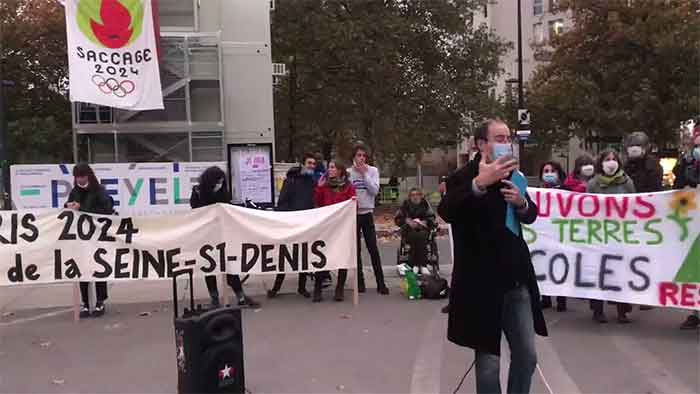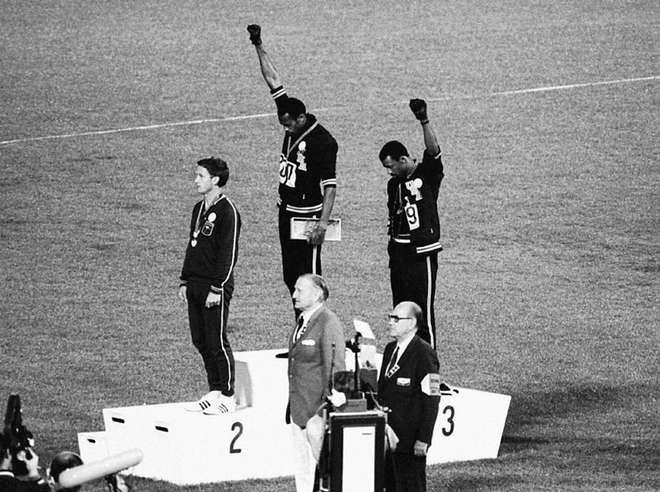
Recent protests by environmental groups against the proposed felling of trees in Paris as part of efforts to speeding up of redevelopment for the 1924 Olympic Games have revived earlier controversies regarding the Olympic Games.
The celebrations relating to this biggest sports event cover up increasing problems relating to them due to which a significant number of initial host candidates who have been withdrawing voluntarily following local protests. Before the event was awarded to Paris, for example, there were withdrawals by Boston, Rome, Hamburg and Budapest. In the case of 1976 Games, Denver withdrew even after the city had been officially selected, paving the way for Montreal to emerge as hosts.
While the Olympic spectacle rolls on, an issue that is increasingly becoming important is that of increasing pressures on host cities with many people complaining about the big event messing up priorities. The host city may end up giving up more essential projects and priorities in favor of huge stadiums and other sports complexes which are likely to remain underutilized later.
There have been protests movements in several cities hosting Olympics and other big sports events ( like the Asian Games and the Commonwealth Games). Such voices of protest and opposition were very much there in Tokyo and what is more, we can already hear these in the context of the Paris Olympics and even the next in line Los Angeles Olympics.
These protests have more generally related to increasing financial costs and displacement of poorer communities caused due to the sudden need for many new constructions and facilities.
According to the Centre on Housing Rights and Evictions, Geneva, nearly 1.5 million people were displaced for Beijing Olympics (2008), preceded by nearly half this number in Seoul. The Asian Games and Commonwealth Games have also led to complaints of big evictions and corruption. The London Olympics in 2012 led to cancelling an important low income housing project.
Excessive punishment was inflicted on Beijing protestors. In the case of Mexico Olympics, student protestors faced police firing. 30 died.
The cost of Tokyo Olympics ultimately more than tripled to around 25 billion dollars from the original estimate of 7 billion. The Montreal Olympics in 1976 had cost 1.5 billion, which was considered excessive at that time and the debts incurred at that time could be fully paid back only 3 decades later, leading to its big stadiums being renamed ‘the big owes’ instead of the big ones.
Another concern is that the concentration of too many sports and sports events within a very short span of about two weeks makes it difficult for sports enthusiasts to really give proper attention to all of them. Too much appears to be happening at the same time and too quickly. The Tokyo Olympics, involving about 11,000 athletes competing in 339 events of 41 sports, were over in just 17 days.
To avoid all these problems, the International Olympics Committee has already taken some decisions from time to time, including organizing the Winter Olympics in a different year from the main Summer Olympics. However these reforms do not go far enough and the main Summer Olympics is itself too massive an event for a single place and concentrated within too short a time.
Hence there is a clear need to spread this once-in-four years event of Summer Olympics and Para-Olympics across about about 40 countries or so, representing all continents. While one country can be the lead venue, responsible for perhaps one tenth of the overall sports events, its responsibilities for all the various sports will be shared by perhaps about 40 other countries in all parts of the world. This way it can become much more of an all-world event. Costs will be shared. The burden of financial costs and management will not be too heavy on any one country.
At the same time the main Olympics can be spread all over the Olympic year, depending upon the most appropriate season of the various host countries. Hence sports enthusiasts will have much more to look forward to enjoying all around the year, instead of having too much of sports concentrated in just about 2 to 3 weeks when they cannot really get the full flavor of over 300 sports events.
In this way Olympic Games can become more representative and participative world events while reducing costs. When the scale of the event is much smaller, it becomes easier to avoid evictions and displacements. In addition a clause requiring minimization of social and ecological costs can be written into agreements with all the countries hosting diverse Olympics events, with certain dos and don’ts being worked out by a team of experts and monitored by special teams. This may well be the way forward to reducing problems as well as increasing enjoyment of the Olympic Games.
At what stage such reforms will be introduced, starting from which Olympics, can be worked out in consultation with various involved parties once the reforms are agreed to in principle.
Somewhat similar reform proposals can also be extended for some other mega sports events, wherever these may be relevant.
Bharat Dogra is Honorary Convener, Campaign to Save Earth Now. His recent books include A Day in 2071, Protecting Earth for Children and Planet in Peril.













































